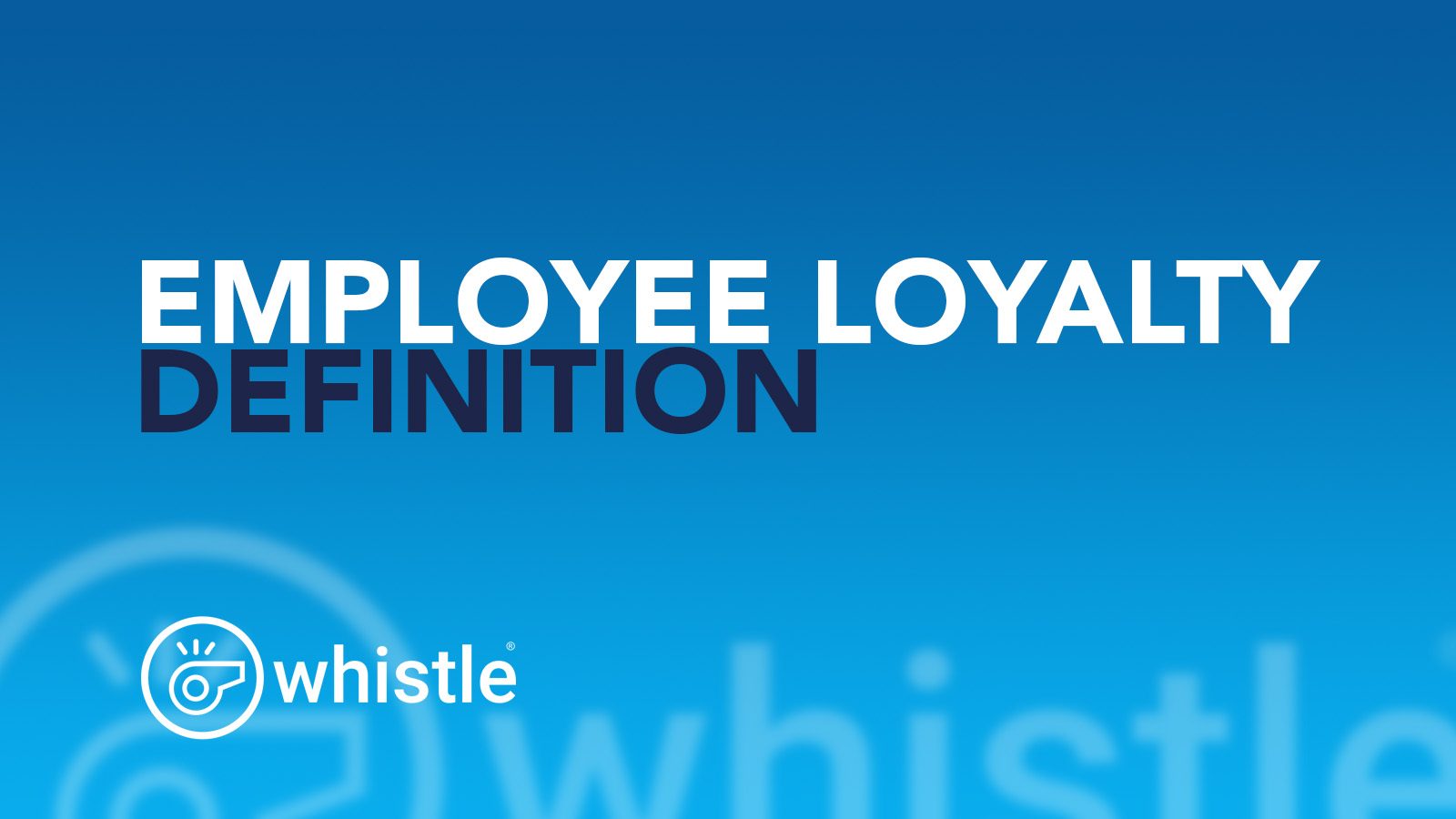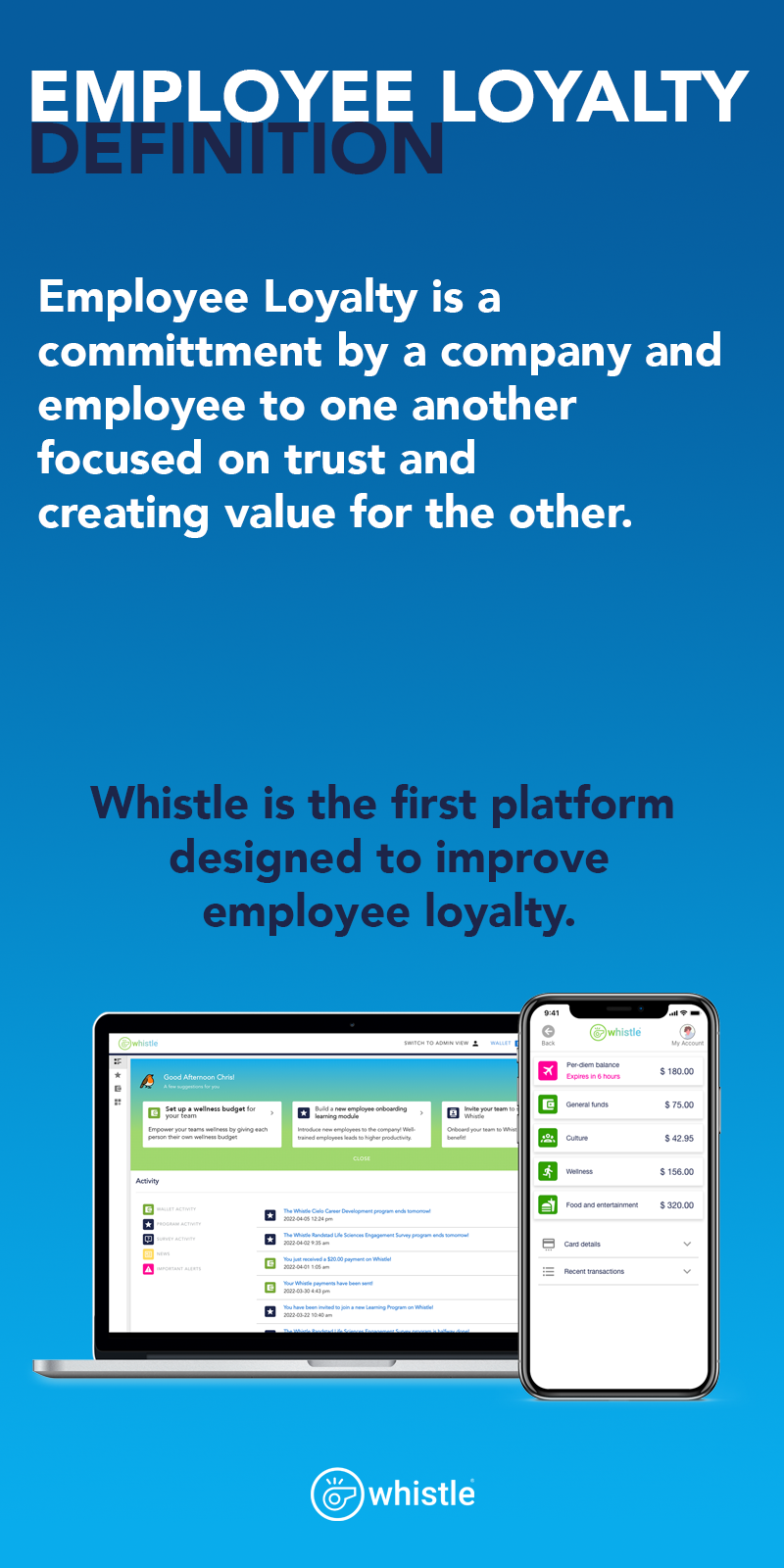Employee Loyalty Definition
Loyalty is a complex recipe. One part logic and (at least) one part emotion. When the recipe is right, it creates a two-way street of value between a person and a business. For years, companies only thought about loyalty in the consumer context, but that is changing.
Any B2C business knows that a loyal customer is better for business. A loyal customer returns more often, buys more products, and is a vocal brand advocate to friends and family. This is why companies spend significant resources to curate loyal customers through loyalty programs and have customer service that keeps loyal customers happy.
Today, it is critical for modern businesses to extend that thought process to their employees. Loyal employees have higher retention, better performance, and put out positive word of mouth about your company. Loyal employees have always been the heart and soul of a thriving business, but it is more important now than ever.
WHAT DOES EMPLOYEE LOYALTY MEAN?
Employee loyalty starts by employers showing appreciation to employees. It is a business treating its employees with the same care and consideration as it does its customers. It is understanding that each employee can leave for a competitor at any time, and inertia alone will not keep them from leaving. It is curating a workplace that is engaging and fulfilling, so that every morning, your employees choose you rather than looking for something new.
Employee loyalty looks like a customer service rep going above and beyond to save a client relationship because they care about their brand reputation. Employee loyalty looks like a staff member pitching in on a project in a different department. Employee loyalty looks like a software engineer not even opening an email from a recruiter offering more salary.
REMOTE WORK HAS INCREASED YOUR EMPLOYEES’ OPTIONS
Understanding the Employee loyalty definition and concept is more important today than ever because the world has changed. 16% of companies are fully remote. LinkedIn data shows that the number of job postings for remote work has increased 350% year-over-year. What started out as a pandemic-necessity does not appear to be slowing down – remote and hybrid work is here to stay.
The rise of remote work means an exponential increase in the number of jobs available to any worker. That increased set of options makes retaining employees even harder. Now it’s not just the company across town poaching your best people – it’s the company four states away. Competition for talent is intense, and employers who do not nurture their employees will see them leaving for the next company that does.
SOCIAL MEDIA AMPLIFIES EVERYTHING – GOOD AND BAD
Another reason employee loyalty is critically important today is the popularity of social media. An employee with high loyalty is more likely to share a positive social media message or video; a great experience they had, a perk they wanted to share, or something else positive about the company. That perfectly timed employee perk has the chance to get broadcast to millions of people. Of course, negative experiences have that same potential too – you don’t want to go viral for treating your staff poorly.
Even outside of Facebook, Twitter, Instagram, and TicTok, sites like Glassdoor have grown in prominence as public-facing scorecards of what it means to be an employee at your company. The lines between your customer-facing brand and your employee-facing one are continuing to blur. The more those worlds collide, the more important it becomes to have high employee loyalty.
HOW DO YOU DRIVE HIGHER EMPLOYEE LOYALTY?
The first step is a mindset shift. Think about your employees as customers of your brand. Why do they choose you? Even after choosing you, are you actively giving them reasons to stay? What is the last thing you did to make your employees feel special?
Every employer must have foundational building blocks, such as fair pay, a safe workplace, and work-life balance. Those factors alone will not drive employee loyalty. Employees want to be rewarded for good performance. They want to have a defined career path, with tools and training to help them grow. They want fun perks. They want to celebrate birthdays, anniversaries, holidays, business milestones, or sometimes for no reason at all. Give your employees something good to TicTok about.
These moments of recognition and joy are what stick in an employee’s mind and create employee loyalty. The paycheck direct-deposited into the bank account is important, but its consistency makes it unremarkable on a week-to-week basis. Getting a surprise $50 from the CEO with a note of appreciation is the type of action that is memorable and impactful. That employee will feel appreciated, motivated, and more loyal to the company the next time a competing job offer hits their inbox.
Whistle, the employee loyalty app
There are many factors that influence employee loyalty but Whistle is the first employee loyalty app specifically designed for that purpose. By leveraging Whistle an integrating with other programs, Whistle can help companies improve bother their top and bottom line.
In a recent case study Whistle helped a manufacturing company reduce turnover by 26% in 90 days through a redesigned onboarding program. The company has always on-boarded people, just never with an employee loyalty app. Companies are using Whistle to people managers to be better people managers, rethinking incentives and rewards, and even changing their approach to culture – building a more inclusive workplace and helping to attract more people.
Contact us for a free demo and better understand how much you can improve employee loyalty when using an employee loyalty app!
 Jesse Wolfersberger is a data scientist, AI thought leader and advisor and co-founder of Whistle. Jesse is also an entrepreneur and former CEO of Vrity, a data company he founded that was acquired by Invsibly.
Jesse Wolfersberger is a data scientist, AI thought leader and advisor and co-founder of Whistle. Jesse is also an entrepreneur and former CEO of Vrity, a data company he founded that was acquired by Invsibly.










